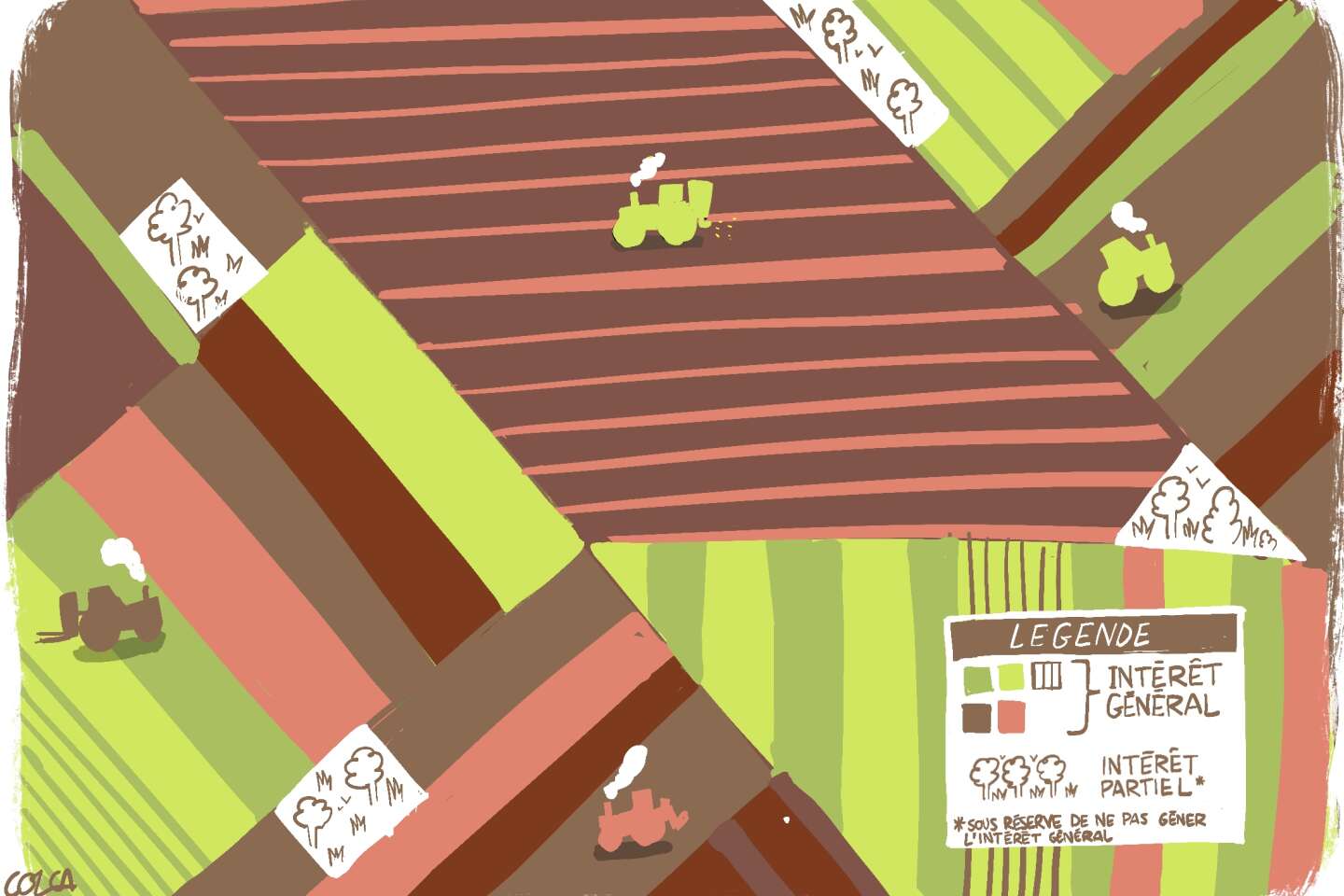Emmanuel Macron made the promise at the opening of the International Agricultural Exhibition on February 24, in response to the protest movement of professionals: agriculture will be recognized as a “great general interest of the French nation”in order to “protect with firmness and solidity”. A principle added when rewriting the bill “on sovereignty in agricultural matters and on the renewal of generations”which will have to be examined in the National Assembly from Tuesday 14 May.
After the food sovereignty enshrined in the first article of the bill, the recognition of the greater general interest constitutes another symbol of this text, recognizing the contribution of agricultural activities to the fundamental interests of the nation.
For the government, this provision addresses a long-term issue, viz “weigh public policies and put agriculture on the same level as the environment”explained the cabinet of the Minister of Agriculture, Marc Fesneau, during the presentation of the bill at the beginning of April, specifying: “This will support the interpretation of the administrative judge responsible for ruling on the validity of this or that agricultural project. » The president of the National Federation of Farmers’ Unions (FNSEA), Arnaud Rousseau, welcomed this recognition: “On a legal level it places agriculture in balance with the environment”he told RTL’s microphone at the end of February, adding that “He is not against ecology, he is alongside ecology”.
Guarantee food sovereignty
The version of the bill adopted in the Economic Affairs Committee on May 4 places the great general interest in a framework that must guarantee the nation’s food sovereignty. From now on it will no longer be agriculture as such that will be declared of great general interest, but “the protection, valorisation and development of agriculture, pastoralism, fishing and aquaculture”. In theirs report and opinion on the billthe MEPs who are rapporteurs of the text underline this “this provision is both of great symbolic importance and of relative legal interest”.
For these four parliamentarians, members of the majority, it seems to be of the same order as that which prevails for education, defined as “first national priority” in the education code, or for the environment, whose protection it is up to“general interest” since 1976. But, they point out, “agriculture remains, within the framework of our hierarchy of rules, at the strictly legislative level”while environmental protection has constitutional value, as the Environmental Charter was attached to the constitutional block in 2005.
